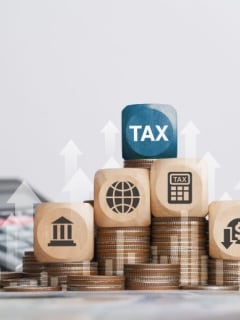CKYC Registry
-
Customer Service Contact us Service request Locate a branch
Find all the help you need
Scan the QR, get our app, and find help on your fingertips

Help CenterSupport topics, Contact us, FAQs and more
-
Login
Are you ready for an upgrade?
Login to the new experience with best features and services
-
Login
Are you ready for an upgrade?
Login to the new experience with best features and services
- Accounts
-
Deposits
IDFC FIRST Bank Deposits
View all Deposits -
Loans
IDFC FIRST Bank Loans
View all Loans - Wealth & Insure
-
Payments
IDFC FIRST Bank Payments
View all Payments -
Cards
IDFC FIRST Bank Cards
View all Cards - Blogs
- Corporate Account
-
Cash Management Services
IDFC FIRST Bank Cash Management Services
View all Cash Management Services - Supply Chain Finance
-
Corporate Lending
IDFC FIRST Bank Lending
View all -
Treasury
IDFC FIRST Bank Treasury
See more details - NBFC Financing
Support topics, Contact us, FAQs and more
- IDFC FIRST Bank Accounts
-
Savings Account
-
Corporate Salary
Account -
Senior Citizens
Savings Account -
First Power
Account -
Current Account
-
NRI Savings
Account -
TASC Institutional
Account -
Savings Account
Interest Calculator
- IDFC FIRST Bank Deposits
-
Fixed Deposit
-
Recurring Deposit
-
NRI Fixed Deposit
-
Safe Deposit Locker
-
FD Calculator
-
RD Calculator
- IDFC FIRST Bank Loans
-
Personal Loan
-
Consumer Durable
Loan -
Home Loan
-
Business Loan
-
Professional Loan
-
Education Loan
-
New Car Loan
-
Pre-owned Car Loan
-
Two Wheeler Loan
-
Pre-owned Two
Wheeler Loan -
Commercial Vehicle
Loan -
Gold Loan
-
Loan Against Property
-
Loan Against Securities
-
Easy Buy EMI card
-
Personal Loan
EMI Calculator -
Education Loan
EMI Calculator -
Home Loan
EMI Calculator
- IDFC FIRST Bank Wealth & Insure
-
FIRST Select
-
FIRST Wealth
-
FIRST Private
-
Mutual Funds
-
Sovereign Gold Bond
-
Demat Account
-
Term Insurance
-
Life Insurance
-
Health Insurance
-
General Insurance
-
Bonds
-
Loan Against
Securities -
Portfolio Management
Service
- IDFC FIRST Bank Payments
-
FASTag
-
Credit Card
Bill Payments -
UPI
-
Funds Transfer
-
Forex Services
-
Pay Loan EMI
- IDFC FIRST Bank Cards
-
Ashva :
Metal Credit Card -
Mayura :
Metal Credit Card -
FIRST Millennia
Credit Card -
FIRST Classic
Credit Card -
FIRST Select
Credit Card -
FIRST Wealth
Credit Card -
FIRST WOW!
Credit Card -
Deals
-
Debit Cards
-
Co-branded Cards
-
Credit Card
EMI Calculator -
FIRST Corporate
Credit Card -
FIRST Purchase
Credit Card -
FIRST Business
Credit Card
- Premium Metal Credit Cards
-
AshvaLifestyle1% Forex₹2,999
-
MayuraLifestyleZero Forex₹5,999
-
FIRST PrivateInvite Only
- Best for travellers
-
MayuraZero ForexMetal₹5,999
-
Ashva1% ForexMetal₹2,999
-
FIRST WOW!Zero ForexTravelLifetime Free
-
FIRST SWYPTravel OffersEMI₹499
-
FIRST Select1.99% ForexLifestyleLifetime Free
-
FIRST Wealth1.5% ForexLifestyleLifetime Free
-
Club VistaraTravelLifestyle₹4,999
-
IndiGo IDFC FIRST Dual Credit CardTravelLifestyle₹4,999
- Max benefits, Free for life
-
FIRST Classic10X RewardsShoppingNever Expiring Rewards
-
FIRST Millennia10X RewardsShoppingNever Expiring Rewards
-
FIRST Select10X RewardsLifestyle1.99% Forex
-
FIRST Wealth10X RewardsLifestyle1.5% Forex
-
FIRST WOW!RewardsTravelZero Forex
-
LIC ClassicRewardsInsuranceShopping
-
LIC SelectRewardsInsuranceShopping
- Reward Multipliers
-
AshvaLifestyleMetal₹2,999
-
MayuraLifestyleZero Forex₹5,999
-
FIRST ClassicNever Expiring RewardsShoppingLifetime Free
-
FIRST MillenniaNever Expiring RewardsShoppingLifetime Free
-
FIRST SelectNever Expiring RewardsLifestyleLifetime Free
-
FIRST WealthNever Expiring RewardsLifestyleLifetime Free
- Rewards & Credit on UPI
-
FIRST Power+FuelUPI₹499
-
FIRST PowerFuelUPI₹199
-
FIRST EA₹NVirtual1% Cashback₹499
-
FIRST DigitalVirtualUPI₹199
-
IndiGo IDFC FIRST Dual Credit CardUPITravelDual cards
- Fuel and Savings
-
FIRST PowerRewardsUPI₹199
-
FIRST Power+RewardsUPI₹499
-
LIC ClassicRewardsInsuranceShopping
-
LIC SelectRewardsInsuranceShopping
- Express and Flaunt
-
AshvaMetal1% Forex₹2,999
-
MayuraMetalZero Forex₹5,999
-
FIRST SWYPEMIOfferMAX₹499
-
FIRST MillenniaRewardsShoppingLifetime Free
- FD Backed rewarding Credit Cards for all
-
FIRST EA₹NVirtualCashback₹499
-
FIRST WOW!Zero ForexTravelLifetime Free
-
CreditPro Balance TransferTransfer & SaveReduce InterestPay Smartly
- IDFC FIRST Bank NRI Forex Solutions
-
Send money to India-Wire transfer
-
Send money to India-Digitally
-
Send money abroad
-
Max Returns FD (INR)
- IDFC FIRST Bank MSME Accounts
-
Platinum Current
Account -
Gold
Current Account -
Silver Plus
Current Account -
Merchant Multiplier
Account -
Agri Multiplier
Account -
TASC Institutional
Account -
Dynamic Current
Account -
World business
Account -
First Startup
Current Account
- IDFC FIRST Bank Business Loans
-
Business Loan
-
Professional Loan
-
Loan Against Property
-
Business Loan for Women
-
Working Capital Loan
-
Construction Equipment Loan
-
Machinery Loan
-
Healthcare Equipment Loan
- IDFC FIRST Bank Business Solutions
-
Payment Solutions
-
Tax Payments
-
Doorstep Banking
-
Point of Sale (POS)
-
Escrow Accounts
-
NACH
-
Payment Gateway
-
UPI
-
Virtual Accounts
-
As per amendment in the Income Tax Rules, PAN or Aadhaar are to be mandatorily quoted for cash deposit or withdrawal aggregating to Rupees twenty lakhs or more in a FY. Please update your PAN or Aadhaar. Kindly reach out to the Bank’s contact center on 1800 10 888 or visit the nearest IDFC FIRST Bank branch for further queries.
-
-
Most Searched
Sorry!
We couldn’t find ‘’ in our website
Here is what you can do :
- Try checking the spelling and search
- Search from below suggestions instead
- Widen your search & try a more generic keyword
Suggested
Get a Credit Card
Enjoy Zero Charges on All Commonly Used Savings Account Services
Open Account Now
Finance
Master money management and save big on taxes
Key Takeaways
Strategic money management can help reduce your tax burden and build long-term wealth.
Investing in tax-saving options like PPF, ELSS, and tax-saving FDs is essential for smart financial planning.
Start early to benefit from compounding and build a diversified investment portfolio for better financial outcomes.
IDFC FIRST Bank offers high-yield savings accounts to help you manage money more efficiently and maximise your financial potential.
On February 1, 2025, Union Finance Minister Nirmala Sitharaman presented the Union Budget 2025. Under the new tax regime, no income tax is payable on income up to ₹12 lakhs. This limit extends to ₹12.75 lakhs for salaried taxpayers with a basic standard deduction of ₹75,000. While this is a welcome change, individuals under the old tax regime still face substantial tax liabilities.
Take the example of Ms. Shreya, a marketing professional earning ₹15,00,000 annually. She ends up paying ₹2,73,000 in taxes. To reduce taxes and retain more earnings, strategic tax planning is necessary. This is where money management comes into play. With thoughtful financial planning today, you can lower your taxable income tomorrow.
Let’s explore some money management tips to achieve this goal.
READ MORE
What is money management?
Money management means planning, organising, and controlling your income and expenses. It encompasses budgeting, saving, investing, and managing debt.
Smart money management goes a step further than tracking expenses. It lets you make strategic decisions to grow your wealth and minimise unnecessary spending—like taxes. This doesn't mean avoiding taxes altogether (which is illegal). Instead, it means ethically optimising your finances to reduce your tax burden.
A well-executed money management plan considers various factors. It considers income, expenses, risk tolerance, and tax laws. The core principle is to allocate your funds to tax-saving instruments strategically. This, in turn, lowers your tax burden. Here’s why it matters –
- Every rupee saved in taxes can be reinvested to grow your wealth
- Strategic investments ensure you meet long-term goals, such as buying a house, funding your child’s education, or retiring comfortably
- Proper tax planning reduces financial stress and gives you more control over your finances
This is where money management skills become indispensable. Let’s explore practical strategies to get started.
Key strategies for effective tax planning
Making informed investment decisions is essential for smart money management. Here are some instruments to help you reduce your tax burden while building wealth –
1. Leverage tax-saving instruments
The Income Tax Act of 1961 offers several tax-saving opportunities through specified investments. Popular options include –
a. Public Provident Fund (PPF)
A PPF is ideal for long-term, tax-efficient investing. Contributions are eligible for deductions up to ₹1,50,000 under Section 80C. Moreover, both the interest earned and maturity proceeds are tax-free. With a 15-year lock-in period and a minimum deposit of ₹500, it's a secure option for steady wealth creation.
b. Equity-Linked Savings Schemes (ELSS)
ELSS mutual funds are a higher-risk, higher-return investment option. They offer tax benefits of up to ₹1,50,000 annually under Section 80C. The short lock-in period of three years provides liquidity along with long-term wealth creation. However, a degree of risk is involved since returns are market-linked.
c. National Pension Scheme (NPS)
The NPS helps you secure your retirement while enjoying tax benefits –
i. Deduction up to ₹1.5 lakh under Section 80CCD(1)
ii. Additional deduction of ₹50,000 under Section 80CCD(1B)
This scheme promotes disciplined retirement planning while reducing taxable income.
d. National Savings Certificate (NSC)
NSC offers a secure, government-backed investment option with a five-year lock-in period. Investments up to ₹1,50,000 qualify for Section 80C deductions, and interest is compounded annually. NSC balances security and moderate returns.
e. Tax-saving fixed deposits (FDs)
A tax-saving FD is a deposit with a five-year lock-in period. The amount invested is eligible for deductions under Section 80C, up to ₹1,50,000 annually. However, interest earned is taxable, and partial withdrawals aren't permitted.
2. Save taxes with life insurance
Life insurance is a smart way to secure your family’s future while saving on taxes. Premiums paid are eligible for deductions up to ₹1.5 lakh under Section 80C. This includes premiums for term plans, endowment policies, or Unit Linked Insurance Plans (ULIPs). In addition, payouts are tax-free under Section 10(10D) if the premium doesn't exceed 10% of the sum assured.
3. Claim deductions on home loans
Home loans are a smart money management tool that offers tax benefits. You can claim deductions up to ₹1.5 lakh on principal repayment under Section 80C and up to ₹2 lakhs on interest paid under Section 24(b). You can also enjoy an extra ₹50,000 deduction under Section 80EE.
4. Invest in health insurance
Health insurance offers dual benefits—financial protection against medical emergencies and tax savings under Section 80D. You can claim deductions up to ₹25,000 for individuals below 60 years of age and ₹50,000 for senior citizens. If you cover parents who are senior citizens, an additional ₹50,000 is deductible. This makes the total deduction available under this section ₹1 lakh.
Note – The tax-saving strategies discussed above are applicable only under the old tax regime.
Let’s understand how these tax-saving options save tax. Assume Ms.Shreya invests in the above investments and purchases health insurance for herself and her parents.
Tax liability and savings |
||
Particulars |
Before tax-saving options |
After tax-saving options |
Income |
₹15,00,000 |
₹15,00,000 |
80C deductions |
₹ 0 |
₹1,50,000 |
80D deductions |
₹ 0 |
₹25,000 |
Net taxable income |
₹15,00,000 |
₹13,25,000 |
Taxes payable |
₹2,73,000 |
₹2,18,400 |
Tax savings with tax-saving options |
- |
₹54,600 |
How to manage money with banking solutions for long-term wealth
Several financial products can help follow money management rules with minimal tax impact –
1. High-yield savings accounts
A savings account isn't just for day-to-day transactions. It can also be a powerful wealth-building tool. The IDFC FIRST Bank Savings Account offers attractive interest rates and monthly interest credits. These benefits can make your money grow faster due to compounding.
It’s also ideal for creating an emergency fund. It ensures you have quick access to funds during unforeseen situations. Plus, interest earned on savings accounts is tax-exempt. The limit is up to ₹10,000 for individuals (under Section 80TTA) and up to ₹50,000 for senior citizens (under Section 80TTB).
2. FDs and recurring deposits (RDs)
Fixed deposits, including tax-saving FDs, provide assured returns and stability to your portfolio. RDs, on the other hand, can complement your tax-saving strategy. They can help you develop disciplined saving, an important money management skill.
Start early for maximum tax benefits
The earlier you start, the greater the benefits of money management. Here’s why –
1. Power of compounding
Starting investments early allows you to benefit from compounding. Here, your returns generate further returns. This is true for long-term investments like PPF or ELSS.
2. Time to build a diversified portfolio
Early starters can experiment with various investment avenues to find the right mix that balances risk and reward. These options can include equities, debt, and mutual funds.
3. Reduced last-minute stress
Procrastinating on tax planning often leads to hasty decisions. They may not align with your financial goals in the long term. Hence, start early and choose instruments that maximise your wealth and tax savings.
Reduce your tax burden for tomorrow
Money management is more than reducing taxes. Understanding how to manage money can secure your financial future. It lets you retain more of your income while building wealth. Start planning today to determine your financial freedom for tomorrow.
The IDFC FIRST Bank Savings Account makes it easier to manage your funds. Its attractive interest rates and features encourage disciplined saving to accumulate wealth. Visit IDFC FIRST Bank and explore FDs and investment products to take control of your financial journey.
Disclaimer
The contents of this article/infographic/picture/video are meant solely for information purposes. The contents are generic in nature and for informational purposes only. It is not a substitute for specific advice in your own circumstances. The information is subject to updation, completion, revision, verification and amendment and the same may change materially. The information is not intended for distribution or use by any person in any jurisdiction where such distribution or use would be contrary to law or regulation or would subject IDFC FIRST Bank or its affiliates to any licensing or registration requirements. IDFC FIRST Bank shall not be responsible for any direct/indirect loss or liability incurred by the reader for taking any financial decisions based on the contents and information mentioned. Please consult your financial advisor before making any financial decision.
The features, benefits and offers mentioned in the article are applicable as on the day of publication of this blog and is subject to change without notice. The contents herein are also subject to other product specific terms and conditions and any third party terms and conditions, as applicable. Please refer our website www.idfcfirstbank.com for latest updates.























